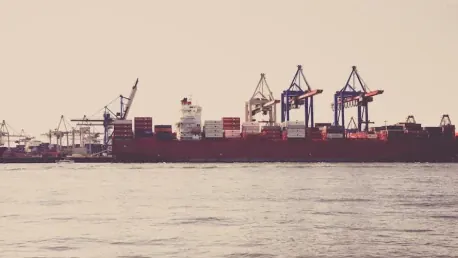In a pioneering move to reduce greenhouse gas emissions in maritime transport, Jaguar Land Rover (JLR) has joined forces with the United European Car Carriers (UECC) in the Sail for Change initiative, a project aimed at decarbonizing the maritime industry. Using low-carbon liquefied biomethane (LBM), commonly referred to as bioLNG, the initiative seeks to make significant strides in reducing emissions associated with the shipping of vehicles. This partnership features the involvement of four vehicle manufacturers and is an integral part of UECC’s broader strategy to cut greenhouse gas emissions across its logistics operations. BioLNG, supplied by Titan Clean Fuels, is already being utilized on five of UECC’s dual-fuel LNG Pure Car and Truck Carriers (PCTCs), leading to substantial emission reductions in the process.
Commitment to Green Energy
The Sail for Change initiative officially began with Green Gas Month in July 2024. Due to its success, it has now been extended into 2025 following a new supply deal with Titan, which guarantees the availability of bioLNG at the Port of Zeebrugge. The expected outcome of this new agreement is a reduction of over 75,000 tons of greenhouse gas emissions, marking a significant milestone in the effort to curb the maritime industry’s environmental impact. JLR’s participation in the venture aligns seamlessly with its ambitious goal to offer electric models by 2030 and to achieve net-zero emissions by 2039.
Interest in sustainable transport solutions has been mounting among car manufacturers, driven by increasingly stringent regulatory pressures and a global need for decarbonization. This development highlights a broader industry trend toward embracing eco-friendly alternatives and innovative approaches to traditional transportation models. For UECC and its partners, this is a clear example of taking concrete steps to address climate change and leading by example in the sector.
Sailing Toward Zero-Carbon Fuels
Under the UECC-led Sail for Change initiative, the company has explored alternative bunker fuels like LBM and bio-diesel for its 15-vessel fleet. This positions UECC uniquely, opening up the possibility to incorporate zero-carbon fuels such as hydrogen and ammonia in the future. The agreement with Titan highlights UECC’s steadfast commitment to alternative fuels, supporting carbon-neutral loading operations within its port network. Verified emissions data related to these operations is accessible to clients via a CO2 registry, ensuring transparency and accountability.
UECC’s proactive stance goes beyond reducing its own carbon footprint; it’s pioneering zero-carbon operations by 2040. Extending the initiative into the next year and securing bioLNG supply ensures continuous operations, encouraging more industry players to follow suit. This represents a promising future where maritime transport balances efficiency with environmental responsibility, aligning with global sustainability goals.
In summary, the UECC and JLR collaboration in the Sail for Change initiative significantly advances efforts to lower maritime emissions through bioLNG. The initiative’s expansion into 2025 and the supply deal with Titan show a growing commitment to sustainable maritime solutions. This partnership not only aims at significant emission reductions but also paves the way for zero-carbon fuels. It underscores a proactive approach toward a greener future in maritime transport, driven by both regulatory pressures and a genuine need for greater sustainability.









